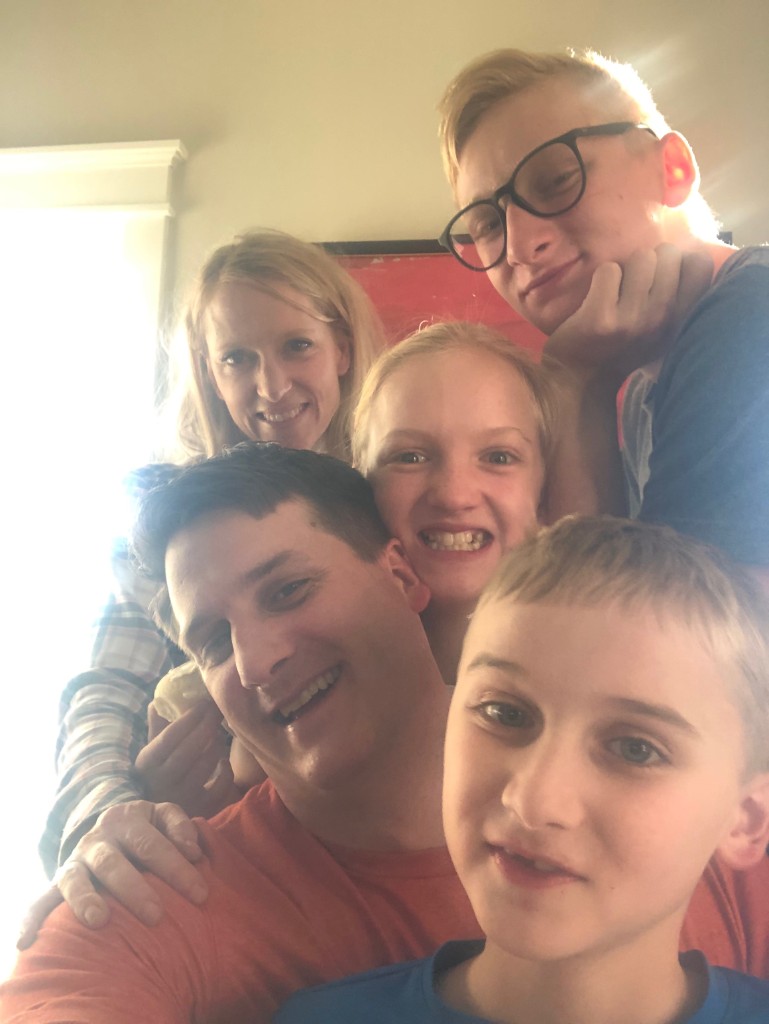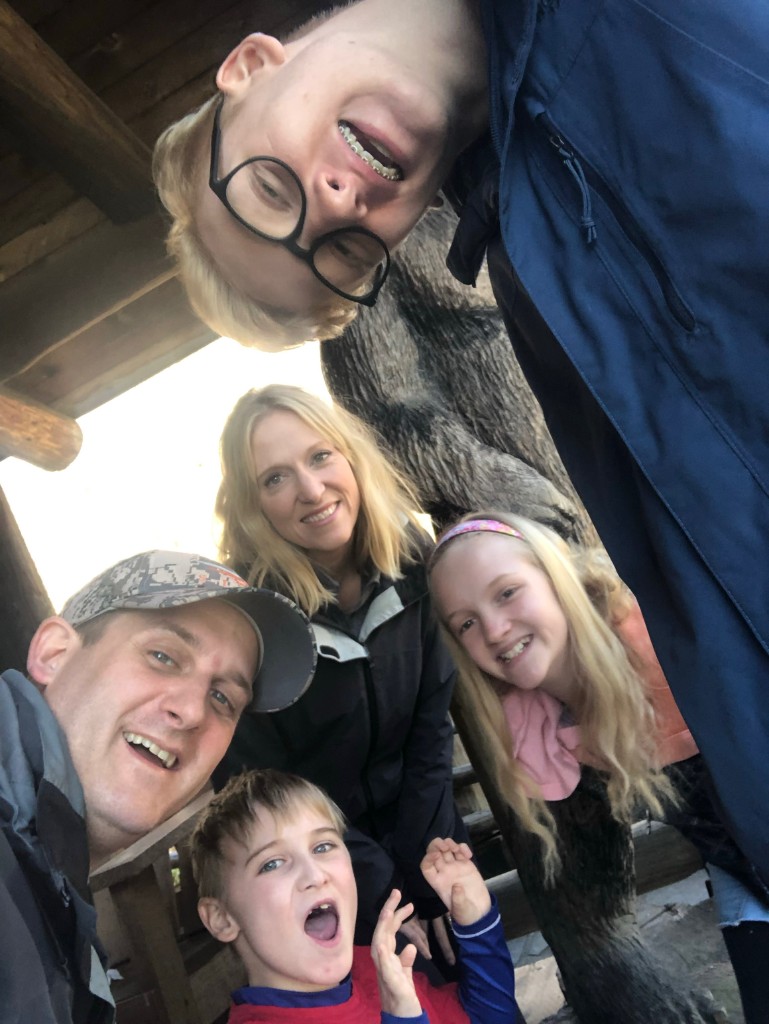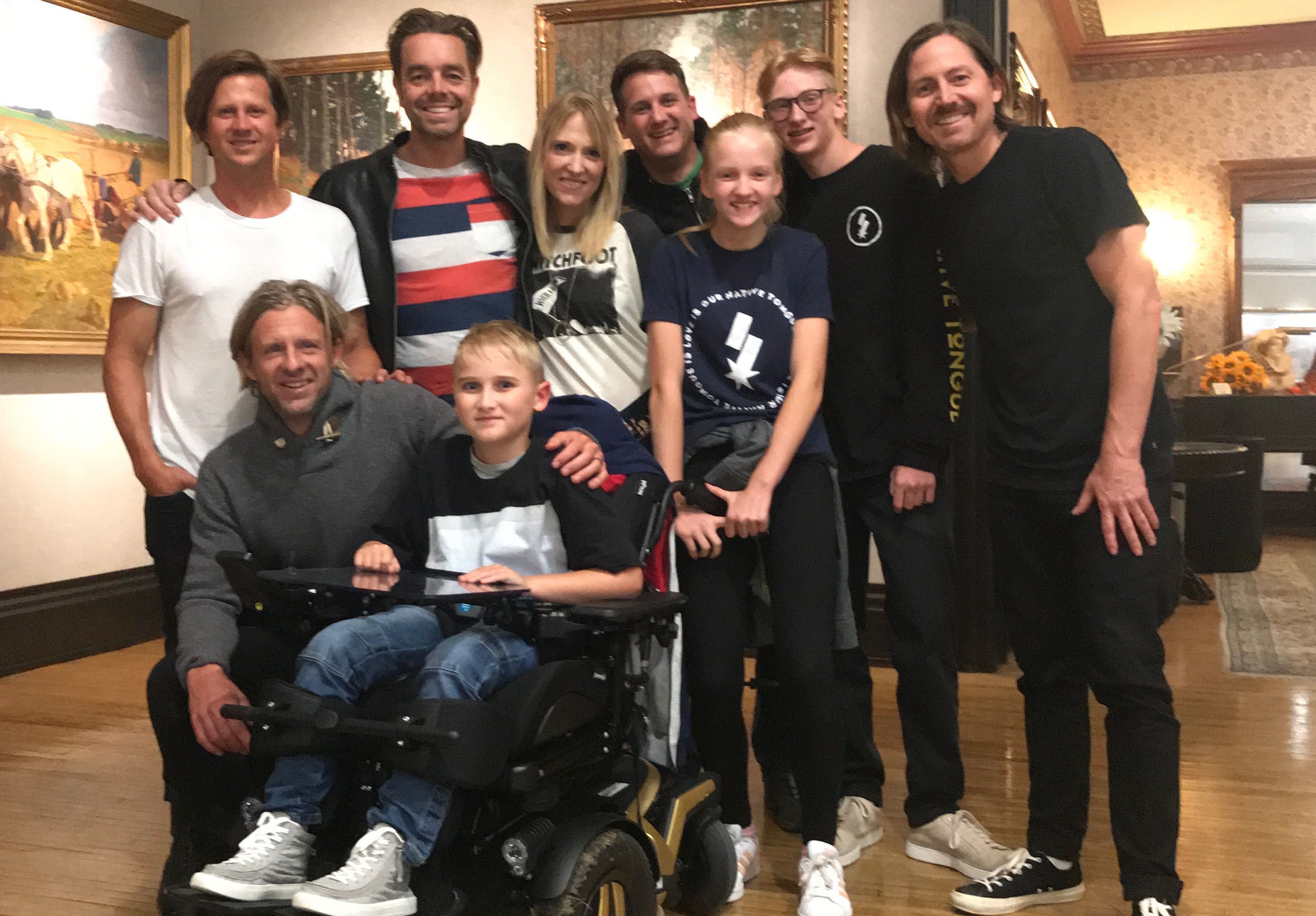November 25, 2019
EveryStep's Chief Medical Director: Dr. Tom Mouser

Dr. Tom Mouser didn't always want to be a doctor. In fact, during his first year of college, EveryStep's Chief Medical Director was actually an engineering major.
"I really liked being creative and building and designing," he says. But during that first year, he remembers it just wasn't "clicking."
"It was too impersonal, I just wasn't very passionate about it," he recalls.
From there, he began thinking of teaching, maybe something like math. Ultimately, he took a Myers-Briggs test and placed heavily in the helping professions.
"At the time, I was dating my now wife, Shonda, and she was in nursing school," he says. "I would help her study and suddenly it occurred to me that I really liked what she was studying. And I thought it was really cool that she was going to be working with people and helping people."
Long story short, as Dr. Mouser says, the realization spurred him to take an elective nursing class.
"Suddenly, I just became extremely passionate about using my desire to understand things and problem solve," he says. "So I ended up changing my major and getting into Michigan State's nursing program."
During his first year at nursing school, Mouser made another realization. He actually wanted to be a doctor.
"I had a really strong desire to go on and continue to learn more about biochemistry and physiology, so I changed my major to physiology. I got my bachelor's degree and then began my pursuit of pre-med studies," he recalls.
At that point, Mouser wasn't sure where he was headed with his medical degree. He'd thought of internal medicine, but didn't know why, or what that meant.
During the first two years of medical school, however, students have a summer break, which provided an opportunity for Mouser to investigate just what he wanted to do as a practicing doctor.
"I wanted to be able to earn a little bit of money, but I wanted to work in the medical field and get more experience," he recalls, noting that he signed up for a work-study program where the assignment was drawn out of a hat.
"To my dismay at the time, I drew Hospice of Northwest Ohio. I thought 'Oh my goodness, this is going to be the most depressing summer of my life,' because I thought, to me, hospice was the end of the road. It was where people went who had no hope left. It was where people went and resigned themselves to death," he recalls.
By the second day at Hospice of Northwest Ohio, Mouser found himself suddenly shocked by how wrong he was about hospice.
"Suddenly, I became extremely passionate about what I saw people doing, because I saw people using their love of people combined with their love of medical sciences to walk alongside people during the scariest part of their journey in life. They helped them live to the fullest. I found that hospice wasn't about dying, hospice was about living," Mouser says.
That first taste of hospice and palliative care was enough for Mouser, who decided that was the direction his medical career would take. Though, he would endure one additional detour.
"So I was really passionate about it, but I didn't exactly know how I was going to do it," he says, noting that he contemplated taking on a fellowship right out of residency, but the thought of moving his small family was daunting as they'd started to put down roots in Des Moines.
"I decided not to go into fellowship," he says. "I went to practice general internal medicine with a desire to work with the palliative care team as much as I could along the way."
That didn't turn out quite how he'd envisioned, however. Instead, Mouser says he felt like he wasn't able to meet people where they needed to be met from a healthcare standpoint because he was too immersed in everyday tasks and keeping his head above water in a new practice.
"So very quickly I began to feel like I made a huge mistake in not going into fellowship," he says, noting that about a year into private practice he began to once again consider fellowship options.
One day, in February 2010, Mouser got a phone call from a friend at Stanford University. The school had received a grant to expand its fellowship program and was looking for to add licensed doctors to the program at the county hospital.
"I said 'are you kidding me,'" he recalls. "I'm literally sitting here thinking about it right now. He'd talked to his program director about me and they wanted to do an interview."
Within two weeks, Mouser was on a plane flying to Stanford. The interview went great and he was offered the position before returning to Iowa.
However, the logistics were a bit intimidating. It turns out that, at the time, there was a one and a half year waiting period to receive a medical license in California. Mouser only had a few months before the fellowship was supposed to start. On top of that, he and his wife had a two-week-old baby and needed to find a way to rent their home and move to Palo Alto for a year.
Even if Mouser was able to make the living arrangements work, if he didn't secure the medical license, he wouldn't be able to start the program.
"There were many people who would move to Stanford and not get their license and have to leave," he notes. "I was calling every single day to find out the status of my application and to share with them our situation. Ultimately, they continued to tell me the same thing, that there was no way that they were going to be able to look at my application early."
Then one day, Mouser's case was assigned to a new person, a temp named Julie.
After sharing his story, Julie said she'd talk to her manager, but didn't make any promises. As he waited for the status update, Mouser was still struggling with how to afford a year in Palo Alto and what to do when he was done.
That's when he received a call from Dr. Norma Hirsch, chief medical officer for what was then known as Hospice of Central Iowa.
"She indicated that Hospice of Central Iowa wanted to meet with me, so I met with Norene Mostkoff (Hospice of Central Iowa's CEO at the time)," he recalls, admitting that at the time he didn't know much about the organization. "She told me that Dr. Hirsch was wanting to retire and that they really, really wanted me to consider working for them when I was finished with my fellowship. They were even willing to give me a stipend for that year if I signed with them. Suddenly there was a job right here in Des Moines, where we had wanted to stay."
Mouser attended an interview with the organization, which included volunteers, hospice staff and Norene.
"I thought it was really cool that the executive leader would want all of those people involved in sizing up who it is they picked for a position that was important to them," he says. "I also picked up on the vibes of passion that people had for others. And so I left the interview knowing it was a no-brainer, I knew where I wanted to be and who I wanted to work with."
A short time later, and two weeks before the fellowship was set to start, Mouser received news that he was officially licensed in the state of California.
"It was definitely a God thing, there was lots of prayer involved," he says, noting that of the seven fellows who were supposed to start the program only three were able to because of the licensure delays. "It's a pretty crazy story of how it all kind of came together, because, ultimately, I was able to start on time and I was able to come back and start this job."
Since joining the organization, Mouser has seen many changes – Hospice of Central Iowa rebranding to HCI Care Services, merging with Visiting Nurse Service of Iowa and then rebranding last year to EveryStep -- but one thing has always stayed the same: the idea that hospice and palliative care will do anything and everything to meet a patient where they're at.
"And to help drive home what is important to them in goals of their care," he adds. "Sometimes people's goals are outside of what we can provide for, but many times we're able to make it happen."
"I love that even though we're a non-profit, we have a whole army behind us that is securing resources so that we can make that care happen. We don't have to tell a patient ‘no’."
Mouser likens the organization to thinking outside the box, not drawing hard boundary lines when it comes to providing the best care for patients and their families.
Mouser recently put that philosophy into practice, traveling to meet a patient who was initially a candidate for the organization's pilot Palliative Care program.
"He's somebody who is eligible for hospice and everything that he needs is hospice, but they're running away from it because it's scary," Mouser says. "So my job is to help them pair what's important to him with the services that best fit his needs."
Mouser points out that data shows people not only live longer when they're in hospice, but their lives are also better.
"I've seen a lot of people with a lot of regrets and seldom is the regret choosing hospice, it's actually that they didn't choose it sooner," he says. "I want people to know that hospice is not the absence of aggressive medical care; it's applying aggressive medical care toward what's valuable and important to them."
And, in the end, Mouser has no regrets about the path he took to hospice. In fact, he believes it wasn't random at all.
"It was like clockwork how it all come together," he says. "And I am very, very passionate about what I do, and about using the time I have on this earth to impact as many people as I can. When you think about it, what you want to do with your career, you want to be able to do something that is worthwhile and lasting."
Mouser is often reminded that dedication when he looks at a decorative plaque his wife gifted him.
It reads: "The great use of life is to spend it for something that will outlast it." - William James.


